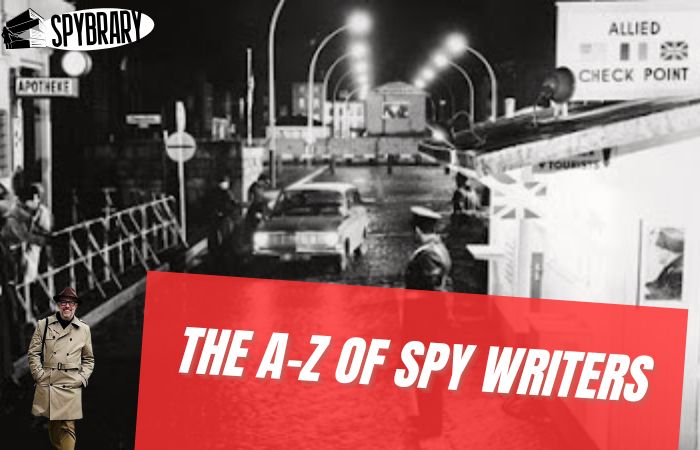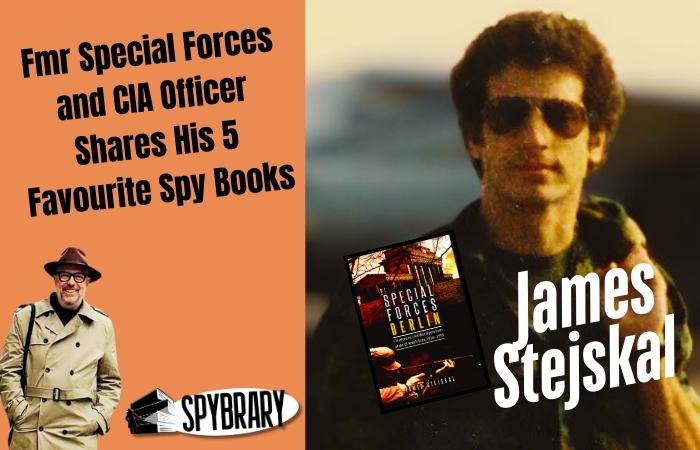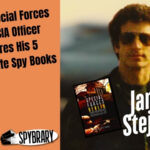
Introduction to the spy books of Clive Egleton
Clive Egleton was a British author of hard-edged, intricately plotted spy fiction, renowned for his realistic portrayal of intelligence work and political intrigue. A former British Army officer, Egleton brought firsthand military and operational knowledge to his novels, crafting espionage thrillers that emphasized realism, tradecraft, and moral complexity. His books often explore the intersection of espionage and politics, with protagonists who are seasoned, pragmatic, and willing to operate in the gray areas of morality.
For fans of John le Carré, Len Deighton, and Anthony Price, Egleton’s novels offer deeply immersive Cold War and post-Cold War espionage stories that feel authentic and highly engaging.
‘Egleton is one of those highly prolific spy writers who are perhaps not rated as highly as they should be. I’ve never read a bad Egleton thriller and the better ones are great examples of that credible craft that a lot of skilled writers managed in the last three decades of the 20th century.'
Tim Shipman
The Best Spy Authors Guide
Key Novels by Clive Egleton
Egleton’s spy fiction is known for its intelligence, complexity, and deep understanding of the geopolitical landscape.
Perhaps his best known book is Seven Days to a Killing, which became the film The Black Windmill starring Michael Caine and Donald Pleasence, two actors I can watch all day. Escape to Athena, which he wrote under the name Patrick Blake, became the Roger Moore WW2 movie. The October Plot, another often listed as his best, transports us to Martin Bormann’s Berlin. But Egleton was responsible for four spy series which are worth your time.
First up was a trilogy of novels set in a Soviet occupied Britain (eight years before Deighton wrote SSGB and put the Nazis in charge). Then came two books featuring MI6 man Charles Winter wrestling with the CIA during the Suez and Cuban missiles crises (The Winter Touch aka The Eisenhower Deception and The Russian Enigma aka Pandora’s Box). Spymaster Cedric Harper features in Seven Days… but also in A Different Drummer, which I enjoyed, and two others. Then, at the end of his career, Egleton began a series of 12 novels featuring MI6 man Peter Ashton.
Here’s a guide to some of his most notable works:
1. A Piece of Resistance (1970)
- Set in a dystopian future where Britain has been taken over by a Soviet-backed puppet regime, this gripping thriller follows an underground resistance fighter working to overthrow the government.
Themes: Resistance, occupation, and the cost of freedom.
2. Seven Days to a Killing (1973)
- A Cold War espionage novel in which British intelligence operatives race against time to stop a Soviet-backed assassination.
Themes: Tradecraft, high-stakes missions, and Cold War politics.
3. The October Plot (1974)
- A meticulously plotted Cold War thriller about a British intelligence officer trying to prevent a coup within the Soviet leadership.
Themes: Political power struggles, deception, and international espionage.
4. The Winter Touch (1978)
- A gripping tale of an MI6 officer tracking a rogue assassin across Europe, with intelligence agencies on both sides of the Iron Curtain playing their own dangerous games.
Themes: Survival, deception, and shifting loyalties.
5. Hostile Intent (1997)
- A contemporary thriller about a retired British intelligence officer who is drawn back into a deadly game when a secret from his past resurfaces.
Themes: Revenge, personal duty, and the changing face of espionage.
Standalone Novels and Later Works
- The Renegades (1986)
- A British operative goes undercover to infiltrate a paramilitary group planning to overthrow the government.
Themes: Domestic espionage, political extremism, and counterintelligence.
- A British operative goes undercover to infiltrate a paramilitary group planning to overthrow the government.
- State Visit (1980)
- A British security officer must prevent an assassination attempt on a visiting Soviet premier, forcing him to navigate both MI5 and KGB interference.
Themes: Diplomacy, treachery, and real-world intelligence tactics.
- A British security officer must prevent an assassination attempt on a visiting Soviet premier, forcing him to navigate both MI5 and KGB interference.
- The End of Days (2003)
- A modern-day espionage thriller dealing with the fallout of Cold War operations and how past intelligence missions continue to shape the future.
Themes: Legacy of the Cold War, betrayal, and survival.
- A modern-day espionage thriller dealing with the fallout of Cold War operations and how past intelligence missions continue to shape the future.
Key Themes in Clive Egleton’s Spy Fiction
- Realism in Espionage:
- Unlike more glamorous portrayals of spies, Egleton’s characters operate in a world of bureaucracy, compromised missions, and ruthless decision-making.
- Political Intrigue:
- His novels often explore the intersection of espionage and domestic politics, showing how intelligence work is shaped by larger political forces.
- Cold War and Post-Cold War Tensions:
- Many of Egleton’s books explore shifting alliances and the way intelligence services adapted after the fall of the Soviet Union.
- Moral Ambiguity:
- His protagonists are pragmatic, experienced operatives who understand that in the world of espionage, there are no easy choices—only necessary ones.
- Tightly Plotted Suspense:
- Egleton was a master at crafting intricate, believable espionage plots filled with double-crosses, high stakes, and brutal realism.
Clive Egleton’s Legacy
- Critical Acclaim: Egleton’s novels were praised for their authenticity, intelligence, and gripping narratives, with A Piece of Resistance often cited as one of the most unique Cold War thrillers.
- Influence in the Genre: His realistic, methodical approach to espionage storytelling influenced later writers who sought to move away from the glamour of the Bond archetype.
- Longevity and Adaptability: Writing across multiple decades, Egleton seamlessly transitioned from Cold War thrillers to modern espionage, maintaining a high level of credibility in his storytelling.
Why Read Clive Egleton’s Spy Fiction?
Clive Egleton’s novels are essential reading for spy fiction fans who appreciate realism, tradecraft, and intricate plots. His books offer a gripping, cerebral alternative to action-heavy thrillers, with a strong emphasis on political and psychological intrigue.
Where to Start?
New to Clive Egleton? Begin with A Piece of Resistance for a Cold War espionage story with a dystopian twist, or The October Plot for a tense spy thriller set in the heart of Soviet power struggles.
Explore More
Check out Tim Shipman's Guide to the Best Spy Authors
Join the Spy Books Community Discussion
Spybrary is more than just a spy podcast; it's a place to chat with fellow spy book and spy film fans from around the world. We encourage you to share your views on each spy book/movie, engage in discussion with fellow fans, and immerse yourself in the captivating world of spy fiction, spy fact and spy films.








